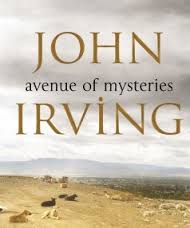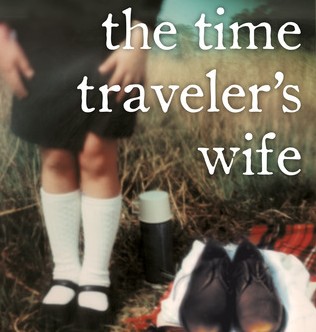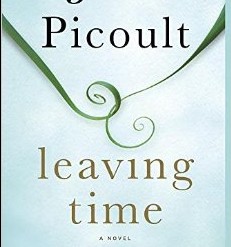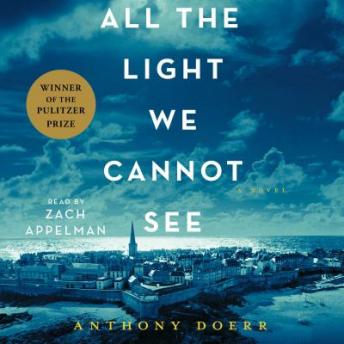Five Months on the First Scene
Believe it or not, I’ve spent the first five months of 2012 discussing the essential elements that must be in the first scene in your book. Wow! Some of those elements, of course, pertain to all your scenes, but I’ve covered them all in as much detail as I (and maybe you) probably want to at this point. In case you never got your nifty first page checklist , download it here. And if you haven’t been following this blog, you can go back and read through the posts of the various elements and hone your writing ability—for that’s what this blog is all about.
Recap
Just to recap. These are the elements we’ve gone deeply into as they relate to your first scene:
- Opening hook
- Introduction of the protagonist
- The MDQ (major dramatic query)
- Themes
- Setting
- The catalyst or inciting incident
- The visible plot goal
- Tone
- A glimpse of greatness in your protagonist
- Scene construction
- Voice
Getting (Honest) Feedback
Hopefully by now you’ve written that first scene and you really like it! If you feel you’ve polished it and it now has every essential element present, you’ll want to give it to some people to read. No, not your mom or spouse or best friend. You need to find some other authors, and preferably ones with some editing chops. Or if you want to be sure you’re getting really helpful feedback, hire a professional copyeditor and writing coach. I edit and judge (contests) a lot of first scenes, and I’ve yet to read one that doesn’t have me writing extensive comments on just about every page. That doesn’t mean I’m so picky and critical I can’t give praise. What I’m saying is that it’s really hard to see if you’ve covered all those bases and created a riveting first scene that will stand out from the piles of manuscripts competing for an agent’s attention.
I know you’re probably thinking I’m just trying to drum up business for myself here, but I try to get my manuscripts critiqued and read by readers who have these chops and will spare no barbs. I don’t want to put out a weak novel, and I’d rather have my test readers tear the thing apart and catch every mistake and plot hole now so I don’t have to cringe once the book is in print and I find I did some stupid stuff (or have readers point them out, which some are most happy to do).
So, even if you’re happy with your critique team, consider running a few chapters by a professional writing coach with experience in critiquing novels. After that, you can certainly hire a proficient copyeditor to correct your spelling and grammatical mistakes. But don’t just send out your novel without putting it through a bit of fire. Fire serves some good purposes. When you put impure silver through the fire, all the scummy dross rises to the surface. That’s a good thing, because you can then skim it all off and you’re left with something in its purest, finest state.
Critiques May Hurt for a Moment but . . .
If you can get past the ego and insecurity issues tied up in having others critique your work, your manuscript will be better for it. And you’ll be much happier with it once you make the needed changes. It doesn’t mean you have to make every correction an editor suggests, but if you take to heart all that’s said and be teachable, you will grow as a writer and write better each year. There’s nothing more satisfying than holding your published novel in your hand knowing you polished it, had it critiqued and edited, and wrote a beautiful, coherent story. This wraps up our look at first scenes. Next week—on to other topics!
This week, go over the first-page checklist and see if you’ve left anything out. If you feel your chapter (or novel) is done, consider having a professional take a look at it and give you feedback. Or have the first fifty pages critiqued. Believe me, once you get those pages critiqued, you will have a whole new, clear focus and understanding of the big picture. Talk to friends who’ve hired editors and get recommendations. If you’re not ready, gear your mind and heart to accept that at some point it might be a good thing to let someone else look at what you’ve written and give you advice. We can all improve, every one of us—best-selling author, writing teacher—everyone.












Hi.
I’ve spent the past day and a bit reading through every one of these blog entries. I must say, I’ve found it quite interesting.
The piece I’m working on at the moment, has gone through a few major changes. One being I changed POV from third to first. I kicked out all the inconsequential back story and tightened it quite a bit.
I will now be giving it another once over, using your checklist as a guide to measure how I’ve done. So thank you in advance for all your insightful posts. I look forward to learning more.
Sarah.
Great timing, Susanne. I’m rewriting my first chapters right now. Thanks for the checklist.
Fantastic advice, as always. So glad I found your blog!
Great advice! I put aside a novel to season before “unjumbling” the opening two scenes. the checklist helps. Thanks!
This is an awesome post and the first page checklist will go into my arsenal for editing time. This post help achieve some clarity that should help get a story off to a roaring crisp start. Thanks so much for this.
Thanks for the comments! I hope you get a chance to read through all the earlier posts. I’ll be compiling and putting it into a book at the end of the year, with much more added to it!
Thanks Susanne:-)I’m going to follow your bullet points and do a re-check of my 1st chapter…what a big help! Thanks 🙂
Very helpful advice
you make magic and juggling seem easy cs
Whoa, it’s anything but easy! But having some guidelines and a list of things to go over and include is helpful. You don’t have to agree with it all–it’s just a road map and if you want to make a left turn at Albuquerque, you can. It can help you find your way back if you wander too far.
Hi there – great article thanks. Just a question – for the first scene, what if your novel deals with a prologue? Often prologues are set apart from the rest of the novel – dealing with the broader theme, but you wont get an introduction to the protagonist (at least not in my prologue). Any thoughts on how we would adapt this? (ideally the first scene is usually the one where the reader decides to go for the book or not)
Prologues are a “controveral” topic. I use them in about half my books. The reason so many don’t “approve” of prologues is many “amateur” writers use them as a way to dump a lot of info and back story into the book at the front because they don’t know how to adeptly work it in. Often the prologues I see in manuscripts I edit are not needed.
I particularly use them for fun in my fantasy series with minor characters “setting the stage” of the drama to unfold. Prologues are mostly used to show a scene that just can’t be in the book but contain crucial information–something that may have happened years earlier, etc. They can also be wonderfully used as foreshadow with a frame structure (where you play out part of a scene from the end of the novel as the prologue to hint at what’s to come, as in the movie Inception). This can be very powerful and I use it in my novel Intended for Harm. If you’re not sure a prologue is a good idea for your book, run it by some critique partners or a professional critique editor like myself to see if it works. Often the info can be presented later in the story through dialog or in a chracter’s head as they discover this information.
Liza Perrat sent me this link, as I am a new writer struggling with my first chapter. Your checklist was a great help!
I signed up for your posts via my email. Thank you.
And thank you to Liza Perrat! That was so nice of her to do for me. 🙂
Hi C.S. Great ideas about how to open a novel with the first Chapter. Want to check out the opening of my novel COLLIDING ORBITS: http://www.CollidingOrbits.co.uk/ Love to know your thoughts… Thanks 🙂 T. S. Fox
Thank you so much for your great advice. I’ve read thru a few of your articles so far and I find them very helpful. The only thing is, I love to pin articles like this so that I can refer to them later and your Pinterest sharing buttons aren’t working right. It’s ok though. I just bookmarked them instead. 🙂